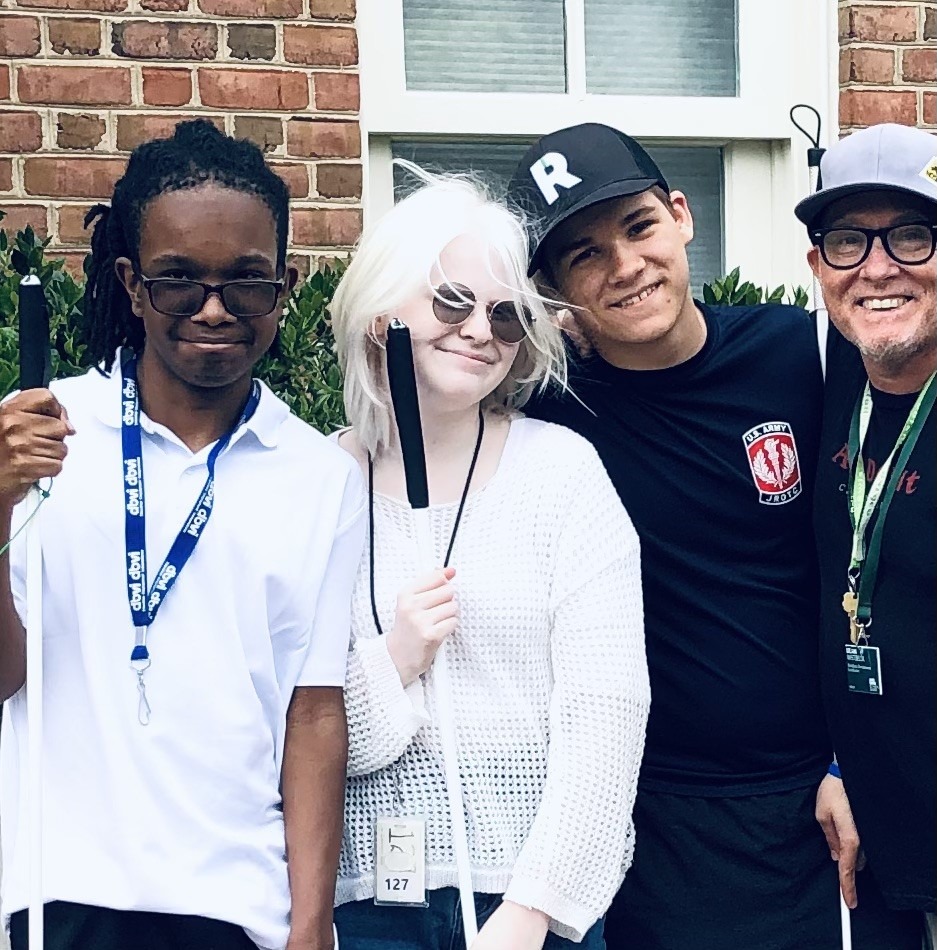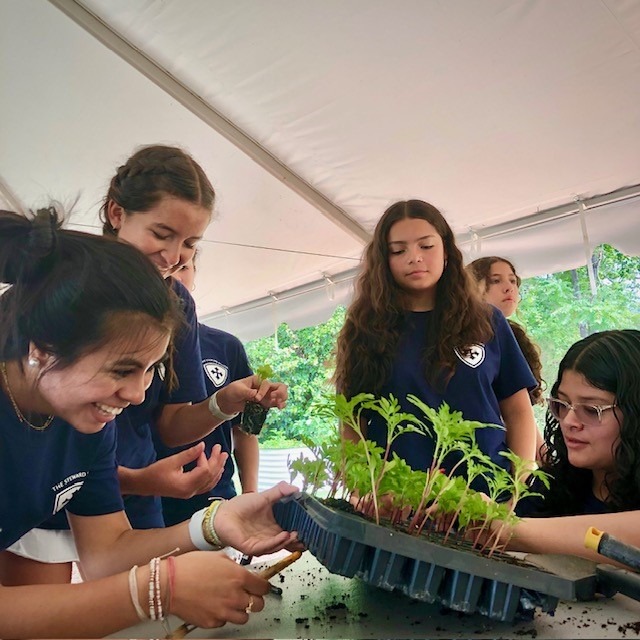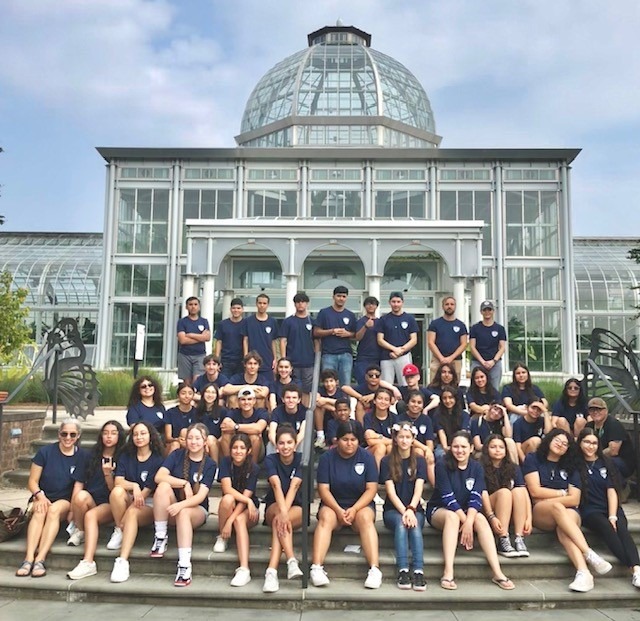Workforce Development at the Garden

Workforce Development Coordinator Dean Whitbeck (far right) with students from DBVI’s Summer LIFE program.
Even if you’re unfamiliar with workforce development, you might remember Dr. Oliver Sacks, a renowned neurologist, who was best known for his writing, including the book Awakenings, his account of how he brought a group of patients “back to life” after they spent years in “frozen states” after an illness. He was also a professor of Neurology and Psychiatry for 48 years, splitting those years between Harvard, NYU, and Columbia medical schools.
It was during his early years as a professor he made a profound discovery that had little to do with the study of the human nervous system. In many ways, his discovery laid the groundwork for what is now collectively known as workforce development. As a professor of fourth year medical students who were steps away from entering their careers with jobs at hospitals, he discovered a consistency amongst them all: they weren’t ready to enter the work world. Three years of medical school had prepared them to be extraordinary clinicians but had desensitized them to the true job of being a doctor: you treat people not a condition or diagnosis.
So, in the final semester of medical school, Dr. Sacks made every burgeoning doctor read the Grapes of Wrath as part of a course, entitled “The Narrative of Medicine,” designed to help deepen empathy in medical students by studying Arts and Humanities. It became an anticipated staple amongst students and his people-first foundation was adopted by other medical schools. In fact, after years of iteration, in 2015, Harvard Medical School launched the Arts and Humanities Initiative with membership that includes doctors, medical students, and employees from every hospital affiliate of Harvard Medical School.
Why Workforce Development Matters
What’s important to understand about Dr. Sacks’ discovery and Harvard’s implementation of the Arts and Humanities Initiative is how, through the emphasis on art forms and literature outside the medical field, each recognized the importance of empathy in the healthcare. Similarly, implementing humanity-centric approaches to workforce development is crucial for organizations and businesses. By prioritizing the human element, these approaches unlock three key components for employees, interns, volunteers, and visitors:
- experience that leads to potential
- empathy that leads to prosperity
- communication strategies that lead to stronger relationships
Science writer and author of Neurotribes, Steve Silberman, wrote of the manner in which Dr. Sacks believed in the potential impact of incorporating humanities and soft skills into workforce development. By nurturing empathy alongside technical expertise, organizations can cultivate well-rounded professionals who want to excel. Silberman, writes, “For Sacks, it was important that students understand that the diagnosis is nearly beside the point…the hero is not the doctor, or even medicine itself. His heroes are the patients who learned to tap an innate capacity for growth and adaptation.”
Workforce Development in Action
This summer, the Garden hosted two groups that were emblematic of its commitment to developing a workforce program rooted in equity and inclusion: the Latino Education Advancement Program (LEAP) and the Department for the Blind and Vision Impaired (DBVI).
50 Students from LEAP spent a morning creating banners and planting Marigolds that will be exhibited during the Garden’s Harvestfest and Día de los Muertos celebrations. Three students from DBVI’s Summer LIFE program participated in a two-week internship. Each student worked side-by-side with a Garden employee, enhancing adaptable skill sets which included stocking shelves in the Garden Shop, inputting data, setting up tables and chairs for events, and general maintenance of the Children’s Garden.
While the LEAP students and the DBVI students had two different Garden encounters, the way they internalized their workforce experiences were the same: greater empathy and communication and developing relationships that enhanced their connection to the Garden. Jose from the LEAP program stated, “I had never thought much about gardening but after visiting, I went home and bought a succulent that I have been watering for three days. I want to come back to Lewis Ginter and intern.” Jasmine thanked the staff and relayed the simple message, “keep moving forward.” Juno, a DBVI intern left an endearing statement on his final day, “thank you to everyone and hopefully we’ll meet again one day. This was a great work experience. I can’t wait to come back.”

